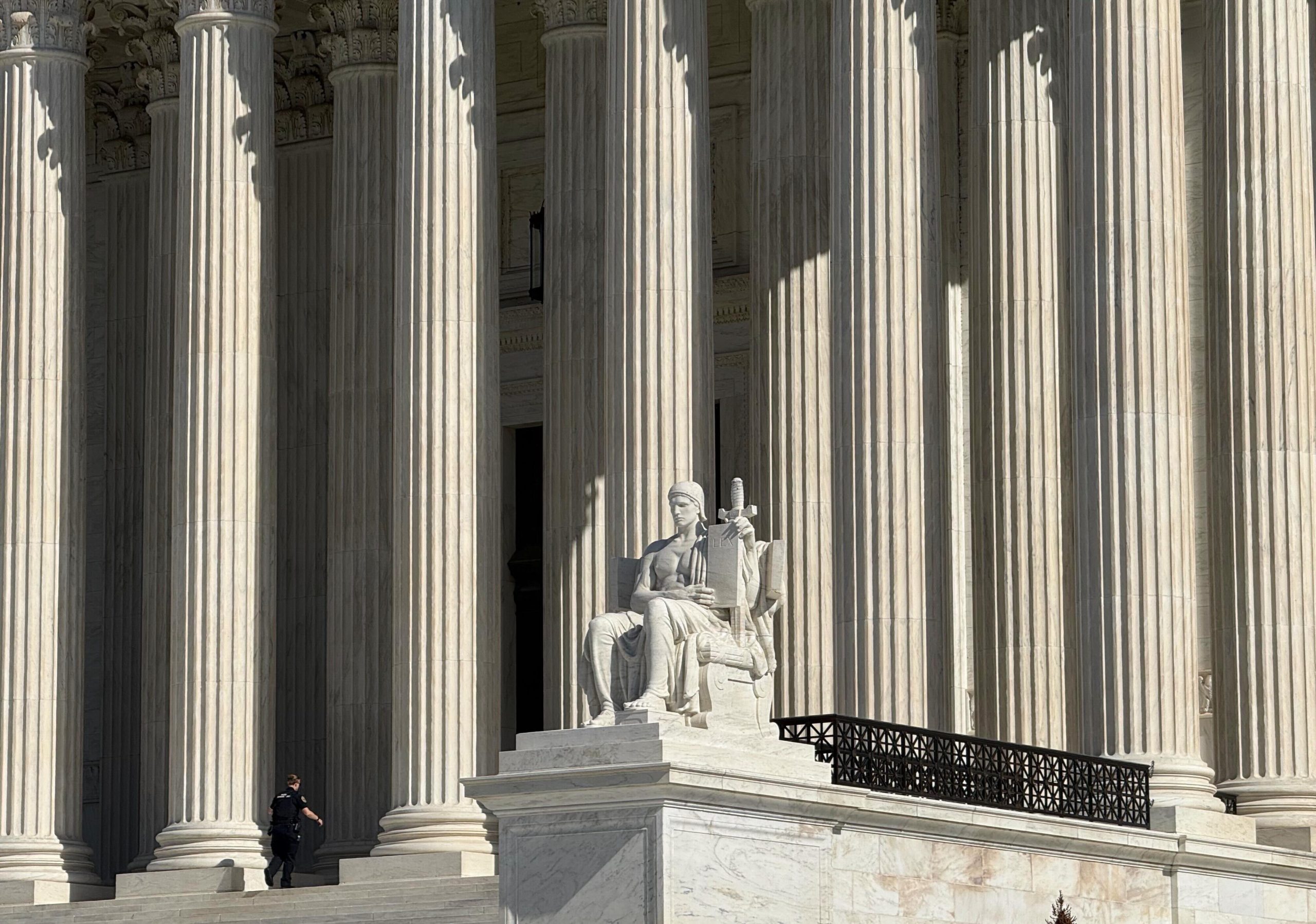Immigrants challenge government effort to deport them to third-party countries


Lawyers for a group of immigrants facing deportation from the United States urged the Supreme Court on Wednesday to leave in place an order by a federal judge in Massachusetts barring the government from sending them to a country not explicitly named in their removal orders unless the government first takes a series of steps to ensure that the immigrants will not face torture there. They wrote that the order by U.S. District Judge Brian Murphy does not prohibit the federal government “from executing removal orders to third countries. Instead,” they emphasized, “it simply requires” the government “to comply with the law when carrying” out such removals.
The 40-page filing came in response to a request filed by the Trump administration last week, seeking to temporarily pause Murphy’s order while the government’s appeal moves forward. U.S. Solicitor General D. John Sauer told the justices that the order has thwarted the government’s efforts to “remove some of the worst of the worst illegal aliens.” This includes its attempts to remove immigrants to South Sudan – a move that Murphy has ruled violated his order. Those immigrants are now being held on a military base in nearby Djibouti.
The dispute began in March, when four immigrants with removal orders went to federal court in Massachusetts. Their lawsuit followed internal guidance issued in February by the Department of Homeland Security, instructing U.S. Immigration and Customs Enforcement to determine whether undocumented immigrants with removal orders who had not yet been deported because of the prospect that they could be tortured if they were returned to their home countries could be sent to a different country instead, of which they are not citizens.
The Trump administration issued more guidance on March 30 in which it outlined a series of procedures that DHS must follow before it can remove immigrants to countries that are not explicitly identified in their removal orders if those countries have not assured the United States that the immigrants will not be tortured.
In their lawsuit, the immigrants contended that as a result of the DHS guidance they feared that they would be removed to a “third-party” country – that is, a country that was not identified in their removal orders.
Murphy issued an order that temporarily prohibited the government from removing the immigrants and others like them to third-party countries. Murphy also instructed the government to notify immigrants and their lawyers in writing of the third-party countries to which they could be removed, and to provide them with a “meaningful opportunity” to challenge that removal.
Sauer came to the Supreme Court on May 27, asking the justices to intervene. He told the court that requiring the government to adhere to the “judicially created procedures” in Murphy’s order is “currently wreaking havoc on the third-party removal process.”
In their response, lawyers for the immigrants countered that “the operational and diplomatic difficulties about which” the government is complaining are the result of the choices made by the government itself: “to violate the district court’s orders and to opt to implement the court’s remedy for those violations overseas.”
The Supreme Court should deny the government’s request, the immigrants told the justices, because the Trump administration is ultimately unlikely to be able to successfully defend its policy – a key criterion in deciding whether to put Murphy’s order on hold. The guidance that DHS issued in March is “deeply flawed,” the immigrants insisted.
Moreover, the immigrants continued, the government’s recent actions “underscore the need to keep” Murphy’s order in place. According to the immigrants, the government has “repeatedly sought to remove people as a punitive measure, to some of the most dangerous places on the planet, and with only hours’ notice.” If Murphy’s order were paused, they explained, they would face the very real prospect of being deported to a country “where they could face torture or death without a meaningful ability to contest that fate.” By contrast, they observed, the government faces no possibility of harm if the order remains in place; it is merely required to follow the law when carrying out third-party deportations.
There is no way to know when the Supreme Court will rule on the government’s request.
Posted in Emergency appeals and applications, Featured
Cases: Department of Homeland Security v. D.V.D.